Filter by

Freud's Dream: A Complete Interdisciplinary Science of Mind
"A Bradford book."OCLC-licensed vendor bibliographic record.
- Edition
- -
- ISBN/ISSN
- 9780262277211
- Collation
- 1 online resource (245 pages) :illustrations
- Series Title
- -
- Call Number
- -
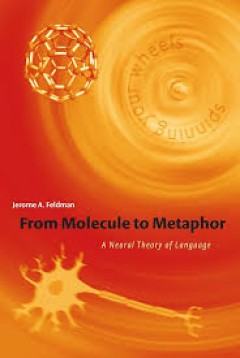
From molecule to metaphor: A Neural theory of language
"A Bradford book."In From Molecule to Metaphor, Jerome Feldman proposes a theory of language and thought that treats language not as an abstract symbol system but as a human biological ability that can be studied as a function of the brain, as vision and motor control are studied. This theory, he writes, is a "bridging theory" that works from extensive knowledge at two ends of a causal chain to…
- Edition
- -
- ISBN/ISSN
- 9780262272544
- Collation
- 1 online resource (xx, 357 pages) :illustrations
- Series Title
- -
- Call Number
- -
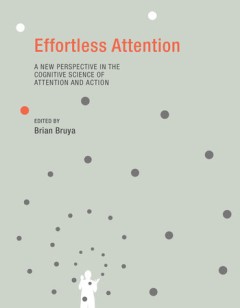
Effortless Attention: A New Perspective in the Cognitive Science of Attention…
The phenomena of effortless attention, action & the challenges they pose to current cognitive models of attention & action are discussed in this volume.OCLC-licensed vendor bibliographic record.
- Edition
- -
- ISBN/ISSN
- 9780262269438
- Collation
- 1 online resource (viii, 449 pages) :illustrations.
- Series Title
- -
- Call Number
- -
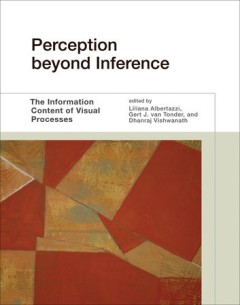
Perception beyond Inference: The Information Content of Visual Processes
Proposing a new paradigm for perceptual science that goes beyond standard information theory and digital computation. This book breaks with the conventional model of perception that views vision as a mere inference to an objective reality on the basis of "inverse optics." The authors offer the alternative view that perception is an expressive and awareness-generating process. Perception creates…
- Edition
- -
- ISBN/ISSN
- 9780262295550
- Collation
- 1 online resource (ix, 445 pages) :illustrations
- Series Title
- -
- Call Number
- -
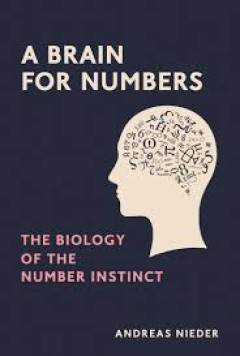
A brain for numbers :the biology of the number instinct
OCLC-licensed vendor bibliographic record.
- Edition
- -
- ISBN/ISSN
- 9780262354318
- Collation
- 1 online resource (344 pages).
- Series Title
- -
- Call Number
- -
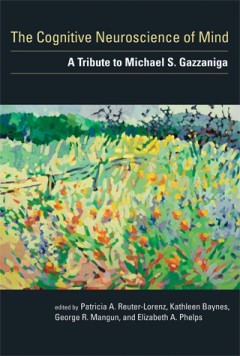
The Cognitive Neuroscience of Mind: A Tribute to Michael S. Gazzaniga
These essays on a range of topics in the cognitive neurosciences report on the progress in the field over the twenty years of its existence and reflect the many groundbreaking scientific contributions and enduring influence of Michael Gazzaniga, 'the godfather of cognitive neuroscience'.OCLC-licensed vendor bibliographic record.
- Edition
- -
- ISBN/ISSN
- 9780262266055
- Collation
- 1 online resource (ix, 240 pages, 4 unnumbered pages of plates) :illustrations (some color)
- Series Title
- -
- Call Number
- -
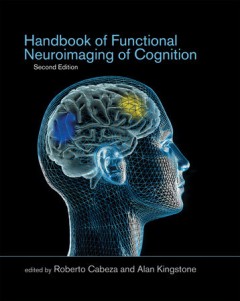
Handbook of functional neuroimaging of cognition
A new edition of the essential resource on using functional neuroimaging techniques to study the neural basis of cognition, revised with the student in mind; thoroughly updated, with new chapters on fMRI physics, skill learning, emotion and social cognition, and other topics. This essential resource on neuroimaging provides an accessible and user-friendly introduction to the field written by le…
- Edition
- 2nd ed.
- ISBN/ISSN
- 9780262316323
- Collation
- 1 online resource (x, 492 pages, 20 unnumbered pages of plates) : illustrations (some color).
- Series Title
- Cognitive Neuroscience
- Call Number
- 610 HAN
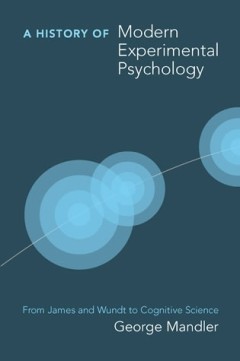
A History of Modern Experimental Psychology : From James and Wundt to Cogniti…
The evolution of cognitive psychology, traced from the beginnings of a rigorous experimental psychology at the end of the nineteenth century to the "cognitive revolution" at the end of the twentieth, and the social and cultural contexts of its theoretical developments. Modern psychology began with the adoption of experimental methods at the end of the nineteenth century: Wilhelm Wundt establ…
- Edition
- -
- ISBN/ISSN
- 9780262279017
- Collation
- 1 online resource (310 pages)
- Series Title
- -
- Call Number
- 150 MAN h
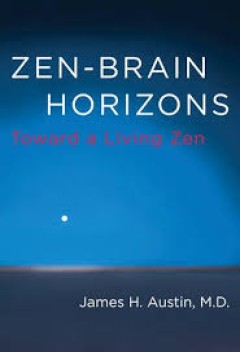
Zen-Brain Horizons: Toward a Living Zen
A neurologist and Zen practitioner clarifies the benefits of meditative training, drawing on classical Buddhist literature and modern brain research."In Zen-Brain Horizons, James Austin draws on his decades of experience as a neurologist and Zen practitioner to clarify the benefits of meditative training. Austin integrates classical Buddhist literature with modern brain research, exploring the …
- Edition
- -
- ISBN/ISSN
- 9780262321150
- Collation
- 1 online resource (xxi, 273 pages) :color illustrations
- Series Title
- -
- Call Number
- -

How the body shapes the way we think : a new view of intelligence
"A Bradford book."An exploration of embodied intelligence and its implications points toward a theory of intelligence in general; with case studies of intelligent systems in ubiquitous computing, business and management, human memory, and robotics.OCLC-licensed vendor bibliographic record.
- Edition
- -
- ISBN/ISSN
- 9780262281553
- Collation
- 1 online resource (xxiv, 394 pages) : illustrations
- Series Title
- -
- Call Number
- 001 PFE h
 Computer Science, Information & General Works
Computer Science, Information & General Works  Philosophy & Psychology
Philosophy & Psychology  Religion
Religion  Social Sciences
Social Sciences  Language
Language  Pure Science
Pure Science  Applied Sciences
Applied Sciences  Art & Recreation
Art & Recreation  Literature
Literature  History & Geography
History & Geography